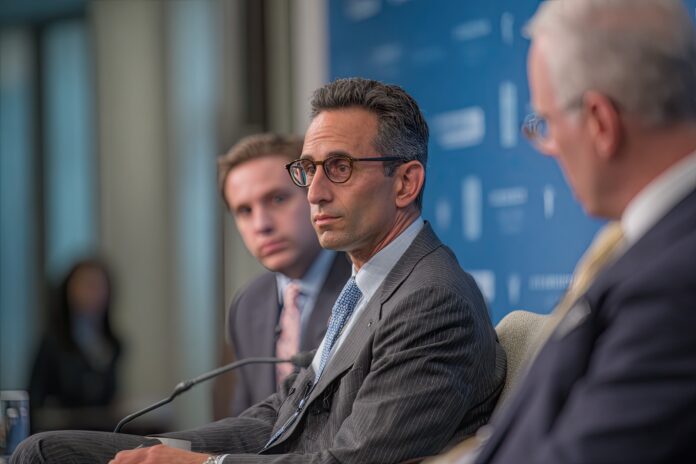Enhancing AI Governance with National Security Leadership
Anthropic, a prominent AI research company, has reinforced its commitment to responsible development by appointing national security expert Richard Fontaine to its Long-Term Benefit Trust. This strategic decision, coming on the heels of introducing specialized AI solutions for U.S. national security, underscores Anthropic’s proactive approach to aligning AI progress with public safety and ethical interests.
Long-Term Benefit Trust: Safeguarding the Public Interest
The focus keyphrase, Anthropic appoints national security expert, captures a pivotal moment for AI governance. The Long-Term Benefit Trust (LTBT) is an independent body within Anthropic tasked with prioritizing safety and long-term societal benefit over short-term profits. Its members, now including Fontaine, hold significant influence, from selecting board directors to advising leadership on maximizing AI’s benefits while mitigating risks.[2]
Who Is Richard Fontaine?
Richard Fontaine brings a wealth of experience from government and national policy. He serves as the CEO of the Center for a New American Security and previously advised the late Senator John McCain. Fontaine’s career spans posts on the National Security Council, the State Department, Capitol Hill, and the Defense Policy Board. He has also been an adjunct professor at Georgetown University, teaching security studies.[1]
Why National Security Expertise Matters for Anthropic
Most importantly, Fontaine’s appointment reflects the increasing interplay between advanced AI and national security. With AI shaping not only technology but also the fundamental aspects of society—including governance, health, and global stability—having experts with strategic and security backgrounds is essential. Buddy Shah, Chair of the LTBT, noted that Fontaine’s experience brings a critical perspective as AI influences geopolitics and democratic institutions.[1]
Advancing Safety in AI: Governance Over Profits
The LTBT aims to ensure Anthropic’s mission—creating AI for the public good—remains uncompromised. Trustees do not hold financial stakes in the company, reinforcing their objectivity. Besides that, the trust’s power to elect board members and advise on key decisions strengthens accountability, especially as AI applications expand into sensitive sectors like defense and intelligence.[2]
AI Solutions for U.S. National Security
Anthropic’s commitment to security is evident in the rollout of its Claude Gov models, tailored specifically for U.S. national security customers. These advanced AI systems handle critical applications—from strategic planning and operational support to intelligence analysis and cybersecurity. Developed with direct feedback from government agencies, the Claude Gov models exemplify how Anthropic integrates rigorous safety testing and operational relevance.[5]
What This Means for the Future of AI
Therefore, bringing Richard Fontaine onto the LTBT positions Anthropic as a leader in responsible AI governance. His expertise in navigating complex global security landscapes will help Anthropic anticipate risks and engage effectively with stakeholders worldwide. This move demonstrates to both the tech and public policy sectors that Anthropic is serious about advancing safe, ethical, and democratic AI development.
Conclusion: Setting the Standard for AI Responsibility
As AI systems become more powerful and integrate deeper into critical infrastructure, robust governance grows ever more vital. With Richard Fontaine’s appointment, Anthropic not only signals a new era of collaboration between AI innovators and national security experts but also sets a standard that others in the AI field may soon follow.



